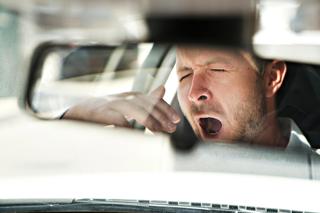Fleets considering cars with advanced bi-xenon or LED headlamps need to balance the potential cost of repair against the safety and residual value benefits they bring.
Andy Cutler, car editor at Glass's, said: "When you have driven a car with the latest generation of headlights and then jump back into a car with standard halogen headlamps, the difference is quite startling.
"They light up so much more of the road and in some cases they use clever technology that adjusts the beam to fit with the conditions, road type and also to avoid glare to oncoming traffic, while still maintaining a high beam elsewhere.
"Clearly this can greatly enhance safety, but another positive factor is that the top end bi-xenon or LED headlamps will very often make a dramatic change to the appearance of the car, which can increase the residual value compared to a model with standard headlamps.
"In some instances manufacturers have launched a new model with the LED daytime running light signature, across all trim levels, as the car can look so ordinary without it and they now realise that they can achieve an extra uplift in starting residual value that is set by the industry.
"We all make our car buying decisions in different ways, whether it be a brand new car for company use or a used car that you will be sinking your own money into.
"Some will look at how a car drives, others focus on reliability, but one of the very first decisions most people make, is how the car looks.
"If the car looks so much better because the manufacturer has put the LED lighting signature on the vehicle, then it is more likely to make a good initial impression.
"However, there is one downside to choosing these headlamps. That is the cost of replacing damaged units. In some cases the cost to replace a headlamp can run into thousands of pounds.
"The full LED headlamps and laser headlamps that are available can cost a small fortune.
"Whilet these are currently rarer and are often only standard on more expensive premium vehicles, there is a growing trend for cars to have xenon or bi-xenon headlamps as standard, and they can cost around £1,000 in some cases to replace, and then there is the labour cost when it comes to fit them.
"This is not necessarily a headline issue at the moment as the majority of used cars do not currently have this technology fitted, but it will become more of a problem for the used car consumer as more enter the used market.
"It may discourage owners from maintaining their cars properly because of the costs involved to replace these expensive units and could lead to more cars being written off for minor front end collisions, due to the costs involved in replacing a couple of headlamps and a front bumper.
"There is no doubt that the latest innovation in headlight technology is a positive step to enhance safety and as long as consumers are aware of the costs involved with replacement, there will be no unwelcome surprises in the future."



















Mr.Bean - 03/11/2017 14:05
Cost of the parts will reduce further when more cars have these options fitted as standard or optional. LED's offer a saving against BI-xenon, the later required headlight washers as a mandatory requirement. In a case of a front end damage, a vehicle with LED's should be cheaper to repair due to the fact you don't need to repair/replace the washers. The cost of LED vs BI-xenon will vary from each manufacturer. All BMW's now have LED as standard, lower models will have their basic system with others having their adaptive units which are more expensive. I do agree that once these are reach the used market (4 years old) their will be some written off due to the costs of the parts. I cant see anyone cost cutting, but I can see people buying used parts for a few £100's. Safety is key and I personally see these more important than the City Safety system and lane assist, which in most cases aren't fit for usage.